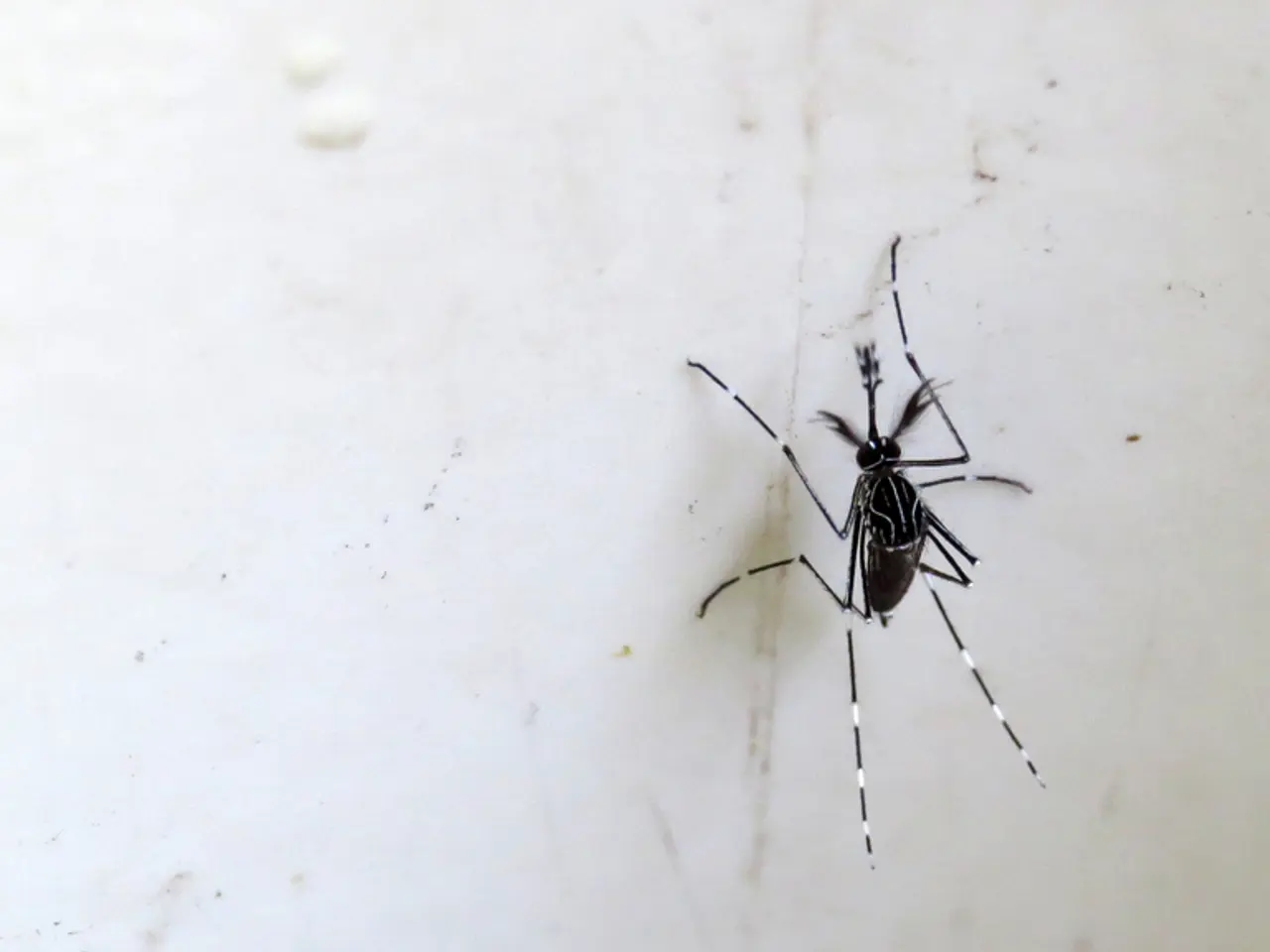Germany Residents Warned Over Concerns About Spread of Chikungunya Virus
In recent years, climate change has been causing a shift in the habitats of pest species, including mosquitoes native to warmer climates. This phenomenon has led to the northward movement of these species, with significant implications for public health.
One such mosquito, the tiger and yellow fever mosquito, previously non-existent in Germany, has become widespread in several German states, including Bavaria, Baden-Württemberg, Rhineland-Palatinate, and Hesse. This development has raised concerns about the potential spread of diseases transmitted by these mosquitoes, such as Chikungunya.
Chikungunya is an infectious disease primarily transmitted to humans via the bite of an infected female Aedes mosquito. The name, derived from a Makonde word meaning "the one who walks bent over," reflects the severe joint pain that is a common symptom of the disease. Although most people recover within a week, the joint pain can be very severe and may last for months or even years.
In Germany, prevention of Chikungunya primarily involves vaccination and mosquito bite avoidance. Two chikungunya vaccines, IXCHIQ® and Vimkunya®, have been approved by Germany's Standing Commission on Vaccines (STIKO) and are now available in the country. Both vaccines are administered as a single dose and generate strong antibody responses in approximately 98% of vaccinated individuals. Booster shots are not currently recommended as antibody levels remain high for at least 12 months post-vaccination.
Vaccination is particularly recommended for travelers to areas with chikungunya outbreaks or individuals at higher risk. However, vaccination coverage by health insurance varies, and individuals should check with their insurer.
Mosquito bite prevention is crucial since Chikungunya is transmitted by Aedes mosquitoes (Aedes aegypti and Aedes albopictus). Measures include wearing long-sleeved clothing, using effective insect repellents, avoiding areas and times with high mosquito activity, and using window screens and mosquito nets when sleeping in at-risk areas.
Treatment for Chikungunya is symptomatic and supportive, as there is no specific antiviral treatment for the virus. Treatment involves rest, hydration, and the use of pain and fever relievers such as acetaminophen or NSAIDs. Pain, especially joint pain, can be debilitating and may persist for some time; medical care should be sought for prolonged symptoms or complications.
While the risk of major outbreaks in Central Europe is not particularly high at present, the pathogen is not yet native to the region and has only been introduced by travelers so far. Recent reports indicate that a person has contracted the chikungunya virus in Alsace, just a few meters from the German border.
Chikungunya has been detected in 119 countries around the world, including Germany, putting 5.6 billion people at risk. The WHO's warning of an epidemic is linked to high levels of global trade and travel, as well as climate change. Other possible symptoms of the disease include joint swelling, muscle pain, headache, rash, nausea, fatigue, gastrointestinal or eye symptoms.
In summary, chikungunya prevention in Germany relies on vaccination and protecting against mosquito bites, while treatment is aimed at relieving symptoms due to the absence of antiviral drugs. It is important for travelers to affected regions in Europe and worldwide to be advised to vaccinate and take mosquito bite precautions.
- The increase in the number of Aedes mosquitoes, such as Aedes aegypti and Aedes albopictus, in Germany, due to climate change, raises concerns about the potential spread of medical-conditions like Chikungunya, which is an infectious disease related to environmental-science.
- Given the detection of Chikungunya in 119 countries worldwide, including Germany, and its potential transmission by mosquitoes thriving in changing environments and climate conditions, it is crucial for health-and-wellness to focus on both vaccination and mosquito bite prevention.




